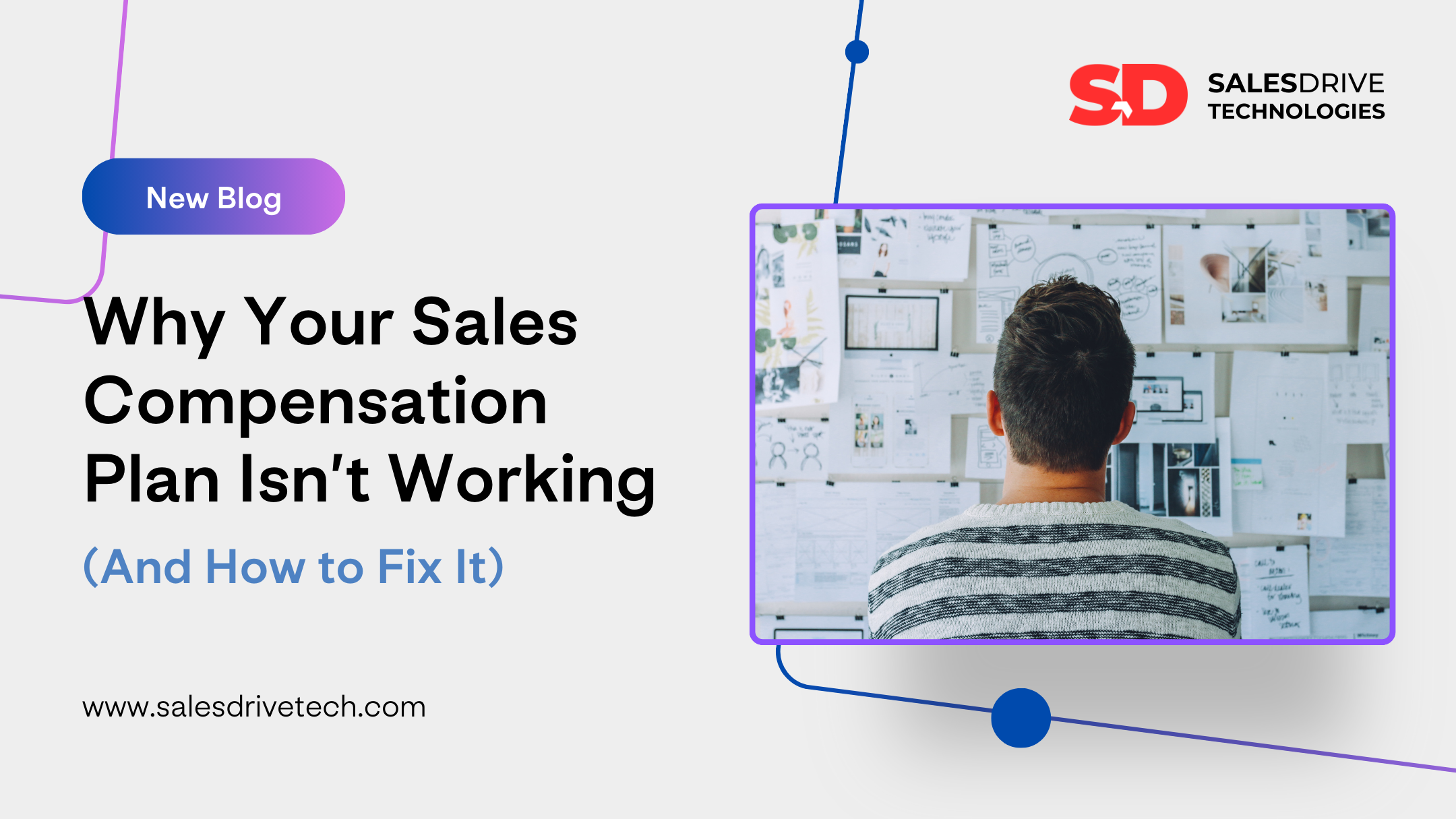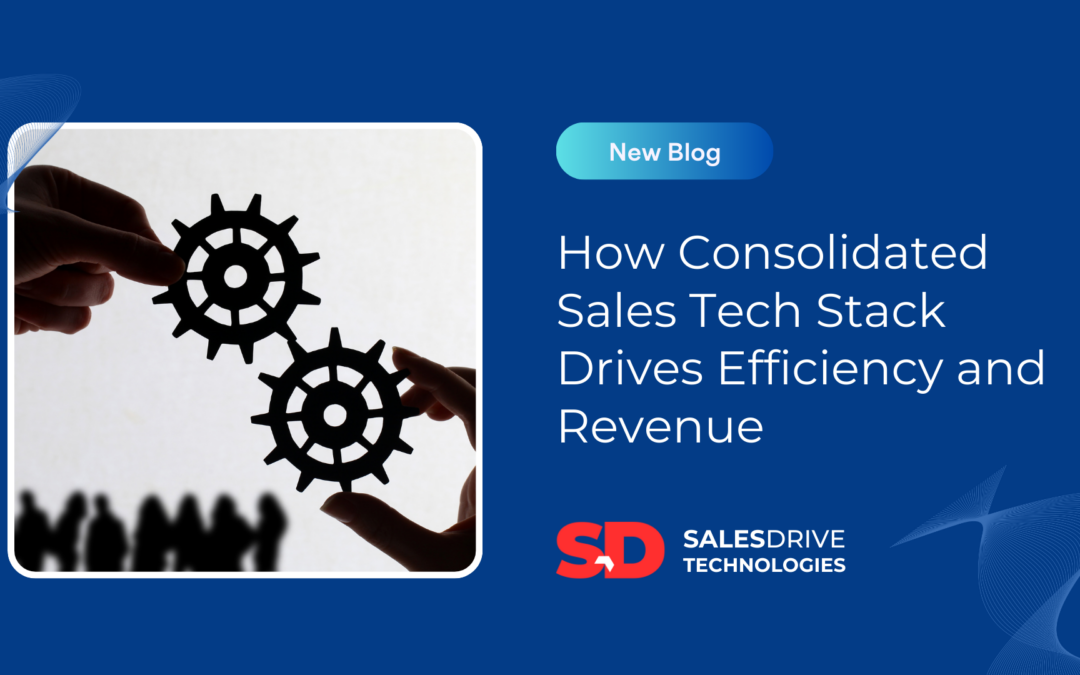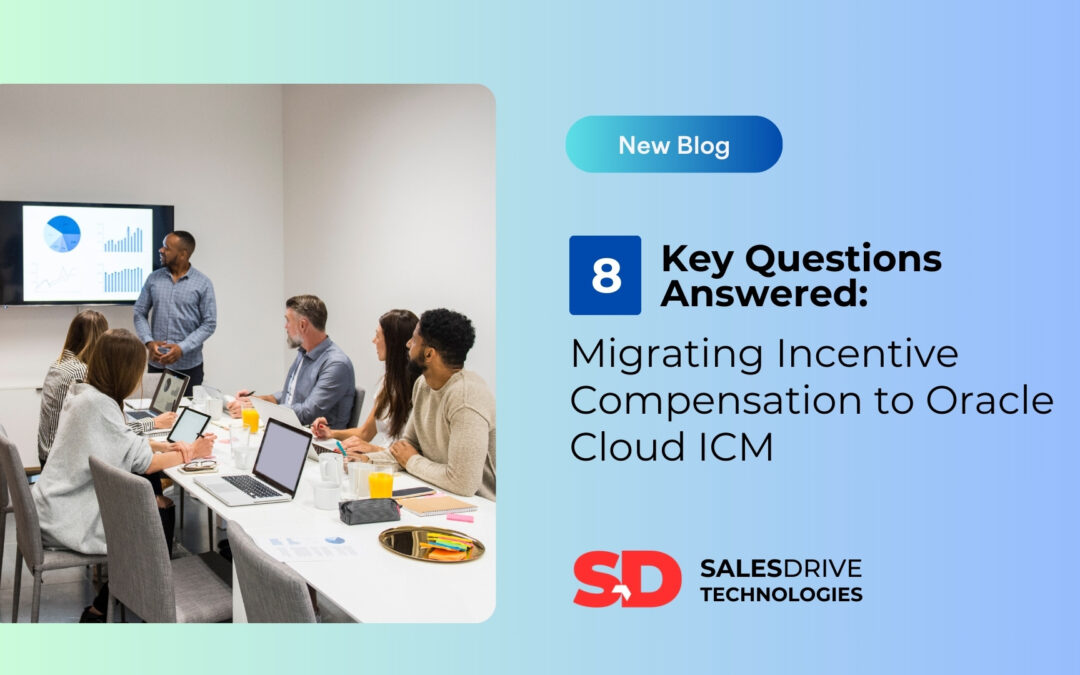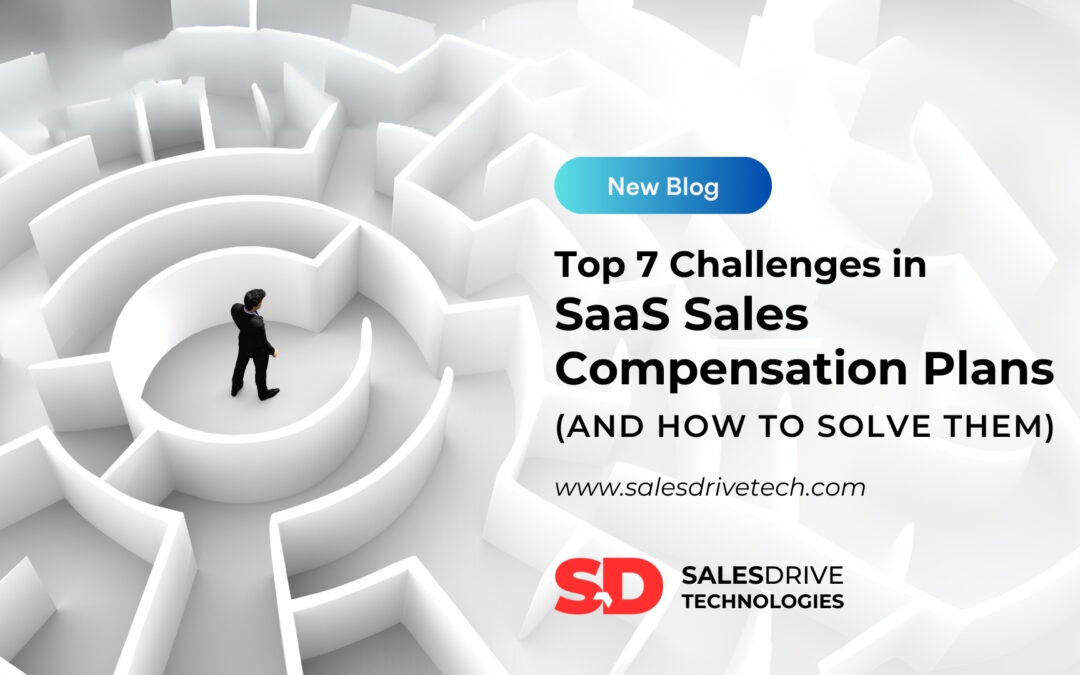Key Challenges in Sales Compensation Plans
Here are some of the most common obstacles that organizations encounter that hinder the revenue growth:- Overly Intricate Plans Many companies design compensation plans that are difficult to understand or administer due to their complexity. This can result in confusion, frustration, and reduced employee motivation.
- Lack of Clarity When compensation plans are ambiguous, sales representatives struggle to grasp how their efforts are rewarded. Misaligned incentives can lead to decreased performance.
- Balancing Salary and Commission Striking the right balance between salary and commission is crucial. An overemphasis on salary can lead to complacency, while a commission-heavy model may create unsustainable pressure.
- Individual vs. Team Incentives Companies often struggle to decide between individual and team-based incentives. Individual incentives encourage competition, while team incentives foster collaboration and shared responsibility.
- Insufficient Expertise Lacking specialized knowledge, many companies fail to design effective compensation plans. This can result in poorly structured programs that don’t achieve their goals.
- Lack of a Data-Driven Approach Successful compensation plans rely on data-driven decision-making. Without proper data and analytics, companies can’t track performance trends or measure the effectiveness of their plans.
- Inaccurate Forecasting Setting realistic sales quotas requires accurate forecasting. When companies rely on outdated data or intuition, they risk creating unrealistic targets that misalign incentives.
- Changing Market Conditions Rapid changes in the market make it difficult to forecast sales accurately. This leads to compensation plans that become misaligned and reduce motivation among employees.
Essential Steps to Optimize Sales Compensation and Drive Growth
To overcome these challenges and ensure long-term success, companies must adopt a strategic approach to sales compensation. Below are critical steps to align compensation plans with business objectives and drive optimal performance. 1. Prioritize Ongoing Communication Engaging regularly with your sales team ensures that they understand the compensation plan, its objectives, and how it aligns with overall company goals. Utilize various communication channels, such as team meetings, one-on-one discussions, and written materials, to reinforce key messages and address any questions or concerns.2. Leverage Data-Driven Reporting
Regular reporting is essential for tracking the effectiveness of your sales compensation plan. Gather and analyze key metrics to assess plan performance, employee motivation, and operational efficiency. Consider tracking metrics such as:- Sales quota attainment: Measure how well your sales team is meeting or exceeding sales targets.
- Employee satisfaction: Gauge employee morale and satisfaction with the compensation plan.
- Sales cycle time: Analyze the average time it takes to close deals.
- Customer acquisition cost: Track the cost of acquiring new customers.
- Employee turnover: Monitor attrition rates to assess the impact of compensation on employee retention.
3. Conduct Comprehensive Analysis
Periodically review your compensation plan to identify areas for improvement. Conduct a comprehensive post-mortem analysis to evaluate the plan’s effectiveness, uncover any shortcomings, and gather valuable insights for future adjustments. Common pitfalls to watch for include:- Unclear governance: Ensure that your compensation plan is supported by clear policies and procedures.
- Process gaps: Identify and address any gaps in your compensation processes.
- Outdated systems: Regularly review and update your compensation tools and technology to ensure they remain effective.
4. Update Your Foundational Program
Leverage the insights from your post-mortem analysis to update and refine your compensation program. This may involve:- Revising role descriptions: Ensure that role descriptions accurately reflect the responsibilities and expectations of your sales team.
- Establishing timeless guidelines: Create clear and consistent guidelines for compensation calculations and adjustments.
- Formalizing governance: Establish a formal governance framework to oversee and manage your compensation program.
5. Strategically Implement Mid-Year Plan Changes
In certain circumstances, such as acquisitions or significant market shifts, it may be necessary to make adjustments to your compensation plan mid-year. When considering such changes, carefully evaluate the potential impact on employee morale and performance. Implement changes fairly and transparently, ensuring that all affected employees are treated equitably. Consider establishing a steering committee to review and resolve any disputes related to mid-year plan changes.6. Foster Continuous Learning and Development
Invest in the professional development of your compensation team. Encourage them to stay updated on industry trends, best practices, and emerging technologies. Provide opportunities for ongoing learning, such as attending conferences, webinars, or taking specialized courses.7. Align Compensation with Your Go-to-Market Strategy
Ensure that your compensation plan is aligned with your company’s overall sales strategy. Consider factors such as:- Revenue segments: Tailor your compensation plan to different revenue segments or product lines.
- Salesforce sizing and deployment: Ensure that your compensation plan supports your salesforce structure and deployment strategy.
- Quota setting: Set realistic and achievable sales quotas to motivate your sales team.
- Performance management practices: Align your compensation plan with your performance management processes to ensure that top performers are rewarded accordingly.
Unlock the Power of Oracle Incentive Compensation for Sales Optimization
With companies facing the above-mentioned immense challenges, a solution like Oracle Incentive Compensation (OIC) is essential for companies aiming to streamline their compensation processes, boost productivity, and ultimately drive revenue growth. OIC empowers businesses by automating critical tasks, providing real-time insights, and aligning compensation with broader sales strategies—addressing the core challenges that often hinder compensation plans from reaching their full potential. By leveraging OIC’s advanced features, companies can:- Motivate Sales Teams and Boost Productivity: Transparent and accurate compensation builds trust within the salesforce, motivating them to achieve targets and excel in their roles.
- Minimize Disputes and Increase Satisfaction: Automated calculations reduce errors, while efficient dispute resolution processes enhance employee satisfaction, ensuring that compensation is handled smoothly and fairly.
- Optimize Administrative Processes and Reduce Costs: Automating time-consuming tasks frees up resources, while seamless integration with other systems ensures consistent and error-free data flow.
- Align Compensation with Business Goals: Tailor compensation plans to fit your specific sales model and objectives. By using data analytics, companies can make more informed, strategic decisions that directly contribute to revenue growth.




